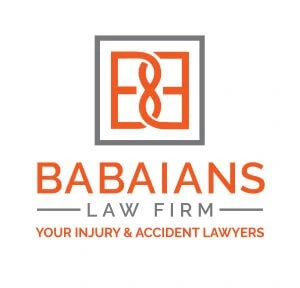
The eligibility criteria and requirements for filing a wrongful death claim vary by jurisdiction, making it essential to understand the specific laws and regulations in your area.
To determine if you have a valid claim, it’s vital to examine the circumstances surrounding the death and explore the key elements that constitute wrongful death. Our Glendale wrongful death lawyers are available 24/7 to speak with you about your claim.
Who Can File a Wrongful Death Claim?
When a child or elderly parent passes away due to someone else’s negligence or wrongdoing, you may be left grappling with the question of who can file a wrongful death claim. The answer varies depending on the jurisdiction, but generally, the right to file a claim is limited to specific family members or representatives.
In most states, the following individuals can file a wrongful death claim for a deceased child:
- The child’s parents
- Adoptive parents
- The child’s legal guardians
If the deceased is an elderly parent, the following individuals may be eligible to file a claim:
- The surviving spouse
- Adult children
- The estate’s personal representative
It’s essential to note that the eligibility to file a claim may also depend on the deceased’s marital status, the existence of a will, or the presence of dependent relatives. You should consult with a Glendale personal injury lawyer to determine who can file a wrongful death claim in your specific situation.
For a free legal consultation, call (818) 334-2981
What Constitutes Wrongful Death?
When considering filing a wrongful death claim for a child or elderly parent, you need to understand what constitutes wrongful death.
Wrongful death is typically caused by another party’s negligence, recklessness, or intentional misconduct, resulting in the loss of a loved one.
To establish a claim, you must identify the specific cause of death and determine whether it meets the necessary elements of a wrongful death claim, including duty, breach, causation, and damages.
Elements of a Wrongful Death Claim
To establish a wrongful death claim, you must prove specific elements were present in the circumstances surrounding your child’s or elderly parent’s passing. These elements typically include a duty of care, a breach of that duty, causation, and damages.
You must demonstrate that the defendant had a duty to act with reasonable care to prevent harm to your child or elderly parent. A breach of this duty occurs when the defendant fails to meet this standard of care.
You must also prove that the defendant’s breach of duty directly caused the death of your child or elderly parent. This is often the most challenging element to establish, as you must show a clear link between the defendant’s actions and the resulting harm.
Click to contact our personal injury lawyers today
Filing a Wrongful Death Claim
When filing a wrongful death claim on behalf of a child or elderly parent, it’s essential to follow the proper procedures to ensure your claim is handled efficiently.
You’ll typically start by consulting with a wrongful death attorney who is experienced in cases involving minors or elderly individuals. We will help you gather the necessary documentation, including the death certificate, medical records, and any relevant witness statements.
You’ll need to identify the executor or personal representative of the deceased’s estate, who’ll be responsible for filing the wrongful death claim. This individual will typically be named in the deceased’s will or appointed by the court.
Your Wrongful Death Lawyer Will Assist You
Once you’ve gathered the necessary documentation and identified the executor or personal representative, your attorney will help you file the wrongful death claim with the court.
We will also guide you through the process of serving the defendants, negotiating a settlement, or preparing for trial.
Complete a Free Case Evaluation form now
Potential Damages and Compensation
If you’re pursuing a wrongful death claim for the loss of a child or elderly parent, understanding the potential damages and compensation you may be entitled to is essential. The primary goal of a wrongful death claim is to provide financial compensation to the surviving family members for their losses.
In a wrongful death claim, you may be entitled to damages such as funeral expenses, medical expenses, and lost income or support. You may also be able to recover non-economic damages, including pain and suffering, emotional distress, and loss of companionship.
The compensation you may be entitled to will depend on the specific circumstances of your case and the applicable laws in your jurisdiction.
Time Limits for Filing Claims
When considering a wrongful death claim for a child or elderly parent, you must be aware of the time limits for filing.
Each state has a statute of limitations that governs the timeframe within which a claim must be initiated, and missing this deadline can result in the loss of your right to pursue compensation.
It would help if you also understood the exceptions to these time limits, such as the discovery rule and tolling periods, which can impact the timing of your claim.
Contact Our Glendale Wrongful Death Lawyers for Help
You’ve reviewed the process of filing a wrongful death claim for a child or elderly parent, understanding who can file and the causes and requirements of such claims. It’s crucial to be aware of the specific eligibility criteria, burden of proof, and time limits for filing in your jurisdiction.
Consulting a wrongful death attorney in Glendale will help ensure your claim is properly filed and you receive the compensation you’re entitled to under the law. For more information, visit our FAQ page. Get a free consultation with Babaians Law Firm now.
